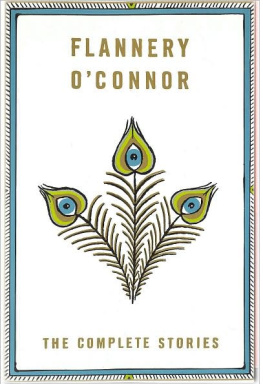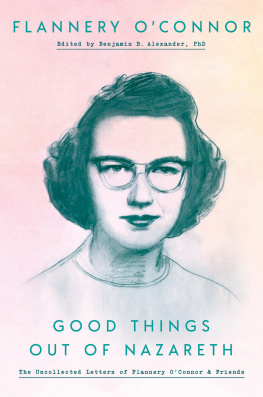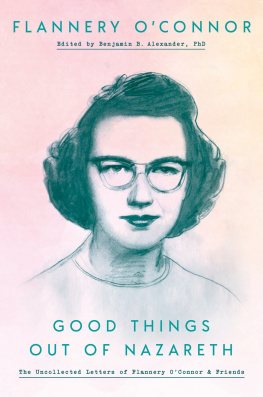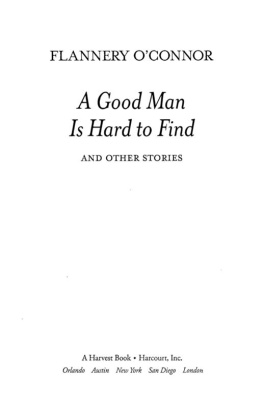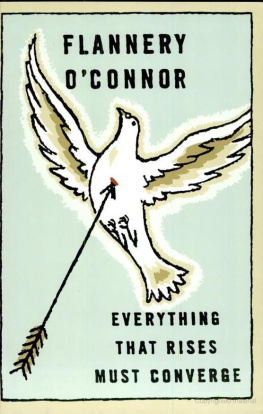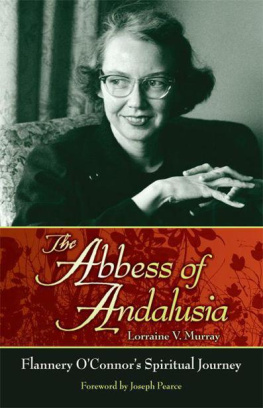Flannery OConnor - Wise Blood
Here you can read online Flannery OConnor - Wise Blood full text of the book (entire story) in english for free. Download pdf and epub, get meaning, cover and reviews about this ebook. year: 1949, genre: Detective and thriller. Description of the work, (preface) as well as reviews are available. Best literature library LitArk.com created for fans of good reading and offers a wide selection of genres:
Romance novel
Science fiction
Adventure
Detective
Science
History
Home and family
Prose
Art
Politics
Computer
Non-fiction
Religion
Business
Children
Humor
Choose a favorite category and find really read worthwhile books. Enjoy immersion in the world of imagination, feel the emotions of the characters or learn something new for yourself, make an fascinating discovery.
- Book:Wise Blood
- Author:
- Genre:
- Year:1949
- Rating:3 / 5
- Favourites:Add to favourites
- Your mark:
- 60
- 1
- 2
- 3
- 4
- 5
Wise Blood: summary, description and annotation
We offer to read an annotation, description, summary or preface (depends on what the author of the book "Wise Blood" wrote himself). If you haven't found the necessary information about the book — write in the comments, we will try to find it.
Wise Blood — read online for free the complete book (whole text) full work
Below is the text of the book, divided by pages. System saving the place of the last page read, allows you to conveniently read the book "Wise Blood" online for free, without having to search again every time where you left off. Put a bookmark, and you can go to the page where you finished reading at any time.
Font size:
Interval:
Bookmark:
Flannery O'Connor
Wise Blood
First published in 1949
For Regina
Author's Note to the Second Edition
Wise Blood has reached the age of ten and is still alive. My critical powers are just sufficient to determine this, and I am gratified to be able to say it. The book was written with zest and, if possible, it should be read that way. It is a comic novel about a Christian malgr lui, and as such, very serious, for all comic novels that are any good must be about matters of life and death. Wise Blood was written by an author congenially innocent of theory, but one with certain preoccupations. That belief in Christ is to some a matter of life and death has been a stumbling block for readers who would prefer to think it a matter of no great consequence. For them Hazel Motes' integrity lies in his trying with such vigor to get rid of the ragged figure who moves from tree to tree in the back of his mind. For the author Hazel's integrity lies in his not being able to. Does one's integrity ever lie in what he is not able to do? I think that usually it does, for free will does not mean one will, but many wills conflicting in one man. Freedom cannot be conceived simply. It is a mystery and one which a novel, even a comic novel, can only be asked to deepen.
--1962
CHAPTER 1
Hazel Motes sat at a forward angle on the green plush train seat, looking one minute at the window as if he might want to jump out of it, and the next down the aisle at the other end of the car. The train was racing through tree tops that fell away at intervals and showed the sun standing, very red, on the edge of the farthest woods. Nearer, the plowed fields curved and faded and the few hogs nosing in the furrows looked like large spotted stones. Mrs. Wally Bee Hitchcock, who was facing Motes in the section, said that she thought the early evening like this was the prettiest time of day and she asked him if he didn't think so too. She was a fat woman with pink collars and cuffs and pear-shaped legs that slanted off the train seat and didn't reach the floor.
He looked at her a second and, without answering, leaned forward and stared down the length of the car again. She turned to see what was back there but all she saw was a child peering around one of the sections and, farther up at the end of the car, the porter opening the closet where the sheets were kept.
"I guess you're going home," she said, turning back to him again. He didn't look, to her, much over twenty, but he had a stiff black broad-brimmed hat on his lap, a hat that an elderly country preacher would wear. His suit was a glaring blue and the price tag was still stapled on the sleeve of it.
He didn't answer her or move his eyes from whatever he was looking at. The sack at his feet was an army duffel bag and she decided that he had been in the army and had been released and that now he was going home. She wanted to get close enough to see what the suit had cost him but she found herself squinting instead at his eyes, trying almost to look into them. They were the color of pecan shells and set in deep sockets. The outline of a skull under his skin was plain and insistent.
She felt irked and wrenched her attention loose and squinted at the price tag. The suit had cost him $11.98. She felt that that placed him and looked at his face again as if she were fortified against it now. He had a nose like a shrike's bill and a long vertical crease on either side of his mouth; his hair looked as if it had been permanently flattened under the heavy hat, but his eyes were what held her attention longest. Their settings were so deep that they seemed, to her, almost like passages leading somewhere and she leaned halfway across the space that separated the two seats trying to see into them. He turned toward the window suddenly and then almost as quickly turned back again to where his stare had been fixed.
What he was looking at was the porter. When he had first got on the train, the porter had been standing between the two cars--a thick-figured man with a round yellow bald head. Haze had stopped and the porter's eyes had turned toward him and away, indicating which car he was to go into. When he didn't go, the porter said, "To the left," irritably, "to the left," and Haze had moved on.
"Well," Mrs. Hitchcock said, "there's no place like home."
He gave her a glance and saw the flat of her face, reddish under a cap of fox-colored hair. She had got on two stops back. He had never seen her before that. "I got to go see the porter," he said. He got up and went toward the end of the car where the porter had begun making up a berth. He stopped beside him and leaned on a seat arm but the porter didn't look at him. He was pulling a wall of the section farther out.
"How long does it take you to make one up?"
"Seven minutes," the porter said, not looking at him.
Haze sat down on the seat arm. He said, "I'm from Eastrod."
"That isn't on this line," the porter said. "You on the wrong train."
"Going to the city," Haze said. "I said I was raised in Eastrod."
The porter didn't say anything.
"Eastrod," Haze said, louder.
The porter jerked the shade down. "You want your berth made up now, or what you standing there for?" he asked.
"Eastrod," Haze said. "Near Melsy."
The porter wrenched one side of the seat flat. "I'm from Chicago," he said. He wrenched the other side down. When he bent over, the back of his neck came out in three bulges.
"Yeah, I bet you are," Haze said with a leer.
"Your feet in the middle of the aisle. Somebody going to want to get by you," the porter said, turning suddenly and brushing past.
Haze got up and hung there a few seconds. He looked as if he were held by a rope caught in the middle of his back and attached to the train ceiling. He watched the porter move in a fine controlled lurch down the aisle and disappear at the other end of the car. He knew him to be a Parrum nigger from Eastrod. He went back to his section and folded into a slouched position and settled one foot on a pipe that ran under the window. Eastrod filled his head and then went out beyond and filled the space that stretched from the train across the empty darkening fields. He saw the two houses and the rust-colored road and the few Negro shacks and the one barn and the stall with the red and white CCC snuff ad peeling across the side of it.
"Are you going home?" Mrs. Hitchcock asked.
He looked at her sourly and gripped the black hat by the brim. "No, I ain't/' he said in a sharp high nasal Tennessee voice.
Mrs. Hitchcock said neither was she. She told him she had been a Miss Weatherman before she married and that she was going to Florida to visit her married daughter, Sarah Lucile. She said it seemed like she had never had time to take a trip that far off. The way things happened, one thing after another, it seemed like time went by so fast you couldn't tell if you were young or old.
He thought he could tell her she was old if she asked him. He stopped listening to her after a while. The porter passed back up the aisle and didn't look at him. Mrs. Hitchcock lost her train of talk. "I guess you're on your way to visit somebody?" she asked.
"Going to Taulkinham," he said and ground himself into the seat and looked at the window. "Don't know nobody there, but I'm going to do some things.
"I'm going to do some things I never have done before," he said and gave her a sidelong glance and curled his mouth slightly.
She said she knew an Albert Sparks from Taulkinham. She said he was her sister-in-law's brother-in-law and that he...
"I ain't from Taulkinham," he said. "I said I'm going there, that's all." Mrs. Hitchcock began to talk again but he cut her short and said, "That porter was raised in the same place where I was raised but he says he's from Chicago."
Next pageFont size:
Interval:
Bookmark:
Similar books «Wise Blood»
Look at similar books to Wise Blood. We have selected literature similar in name and meaning in the hope of providing readers with more options to find new, interesting, not yet read works.
Discussion, reviews of the book Wise Blood and just readers' own opinions. Leave your comments, write what you think about the work, its meaning or the main characters. Specify what exactly you liked and what you didn't like, and why you think so.


